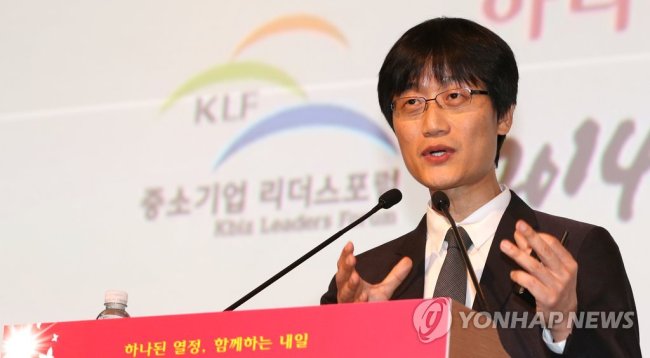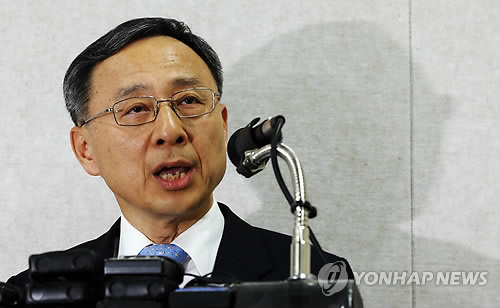Lawmakers accused the government for systematically hindering the controversial implementation of a blacklist system for mobile device registration during a parliamentary audit on Monday, with the ministry in charge refuting that cautious approach is needed to adopt the system.
The report produced by the Ministry of Science and ICT and submitted to Rep. Kim Sung-soo of the ruling Democratic Party of Korea states that that implementation of the blacklist system will not contribute to cutting household costs for mobile fees and will rather increase burdens of purchasing new devices, according to Kim.
The report, authored for internal use, cited the blacklist system wouldn’t have effects of lowering prices of devices, considering Korea’s market structure that sets retail prices of mobile devices at higher levels than in other countries, according to Rep. Kim.
“Samsung and Apple wouldn’t see the need to cut their prices in the Korean market, because about 95 percent of their sales come from other markets than Korea,” Kim said quoting the report.
 |
Naver founder Lee Hae-jin |
Including Rep. Kim and a number of lawmakers have been pushing for expanding the partially operating blacklist system in the Korean mobile market to fix the high mobile cost problem.
However, the ICT Ministry has remained cautious of carrying out the plan immediately.
ICT Minister Yoo Young-min said, “The issue should be closely reviewed at a social consultative body, due to wide-range of effects on device manufacturers, mobile carriers, independent distributors and consumers.”
Kim Yong-soo, vice minister for ICT policies, said the report handled basic concerns about the side effects of the blacklist system, dismissing the lawmaker’s claim that the government is officially working in opposition to the system.
Currently, Korean mobile carriers manage subscriptions of handsets under the international mobile equipment identity system, or widely known as the whitelist system, which the lawmaker argued is a cause of high mobile costs.
 |
KT Chairman Hwang Chang-gyu |
Under the system, the prices of mobile devices and calling plans have been inevitably interlocked, concealing from consumers how much they actually pay for their devices and plans.
The blacklist system was partially introduced in 2012, allowing consumers to purchase mobile devices independently and choose a calling plan at one of three mobile carriers.
Since President Moon Jae-in had pledged to cut mobile costs for households in the campaign, Korea has had fierce debates on the level of mobile costs.
As part of government guidelines, the country’s three mobile carriers decided to cut 11,000 won per month in mobile bills for senior citizens and expand the rate of selective discount plans from 20 percent to 25 percent.
SK Telecom CEO Park Jung-ho said at an earlier audit session held on Oct. 12 that there is room for further cuts in mobile plan fees and he supports the blacklist system.
At an afternoon session, KT Chairman Hwang Chang-gyu, LG Uplus Vice Chairman Kwon Young-soo, Samsung Electronics’ mobile communications head Koh Dong-jin and Naver founder Lee Hae-jin were set to appear before the lawmakers to testify.
It was the first time that KT’s Hwang, Samsung’s Koh and Naver’s Lee to make their appearances at the parliamentary audit. In the Oct. 12 session, lawmakers harshly criticized the IT moguls’ refusals to attend.
By Song Su-hyun (
song@heraldcorp.com)









![[Today’s K-pop] Blackpink’s Jennie, Lisa invited to Coachella as solo acts](http://res.heraldm.com/phpwas/restmb_idxmake.php?idx=644&simg=/content/image/2024/11/21/20241121050099_0.jpg)